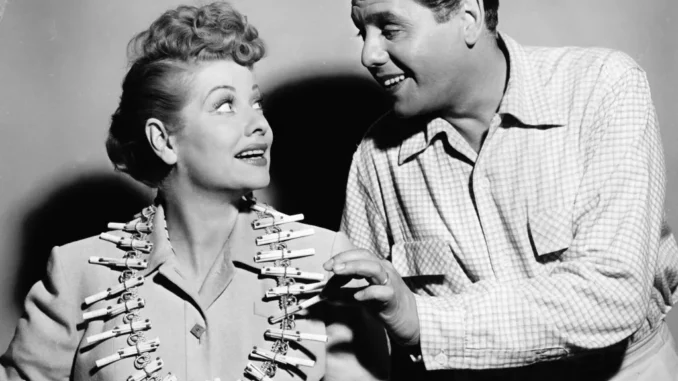
One of the most captivating aspects of the iconic sitcom “I Love Lucy” is the complex and often tumultuous relationship between Lucy Ricardo and Ricky Ricardo. While their comedic chemistry and undeniable love for each other are undeniable, their relationship was far from perfect. This article will delve into the intricacies of Lucy and Ricky’s relationship, exploring the challenges they faced, their impact on the show’s success, and their relevance to modern audiences.
The Idealized Couple
The Picture-Perfect Image
On the surface, Lucy and Ricky appeared to be the perfect couple. Their love story was filled with romantic moments, laughter, and unwavering support. They were often portrayed as a united front, overcoming challenges together and always finding their way back to each other. This idealized image of their relationship resonated with audiences and contributed to the show’s popularity.
The Power of Chemistry
The undeniable chemistry between Lucille Ball and Desi Arnaz, the actors who played Lucy and Ricky, played a significant role in the success of their relationship on screen. Their natural rapport and ability to bounce off each other created a believable and endearing dynamic that captivated viewers.
The Underlying Challenges
Cultural Differences
Despite their love for each other, Lucy and Ricky faced challenges stemming from their cultural differences. Lucy was an American woman from a working-class background, while Ricky was a Cuban bandleader with a more traditional upbringing. These differences often led to misunderstandings and conflicts, adding a layer of complexity to their relationship.
Career Ambitions
Lucy’s ambition to pursue a career in show business often clashed with Ricky’s traditional views on gender roles. Ricky struggled to accept Lucy’s desire for independence and professional success, leading to tension and conflict between them.
Financial Struggles
The Ricardos faced financial difficulties throughout the series, which put a strain on their relationship. The stress of money problems often led to arguments and misunderstandings, testing the strength of their bond.
Infidelity and Trust Issues
While Lucy and Ricky were generally faithful to each other, there were instances of infidelity and trust issues that threatened their relationship. These challenges mirrored the complexities of real-life marriages and added a layer of realism to their story.
The Impact of Lucy and Ricky’s Relationship on the Show
Driving Force of the Series
Lucy and Ricky’s relationship served as the driving force behind “I Love Lucy.” Their comedic interactions, romantic moments, and personal struggles were the heart and soul of the show. Without their captivating dynamic, the series would have been significantly less successful.
Social Commentary
Through Lucy and Ricky’s relationship, the show subtly addressed social issues of the time, such as gender roles, cultural differences, and financial struggles. By portraying these issues in a humorous and relatable way, “I Love Lucy” sparked important conversations and challenged societal norms.
The Relevance of Lucy and Ricky’s Relationship Today
Timeless Themes
Despite being produced over 60 years ago, the challenges and complexities faced by Lucy and Ricky remain relevant today. Their relationship explores universal themes of love, trust, communication, and personal growth that continue to resonate with audiences.
A Model for Modern Relationships
While Lucy and Ricky’s relationship was not without its flaws, it also serves as a model for modern relationships. Their ability to overcome challenges, forgive each other, and ultimately find their way back to each other offers valuable lessons for couples today.
Lucy and Ricky’s relationship in “I Love Lucy” is a complex and fascinating exploration of love, marriage, and human nature. Their on-screen dynamic has captivated audiences for generations, and their story continues to resonate with viewers today. While their relationship was not without its challenges, it ultimately serves as a testament to the power of love and the importance of communication and understanding.
